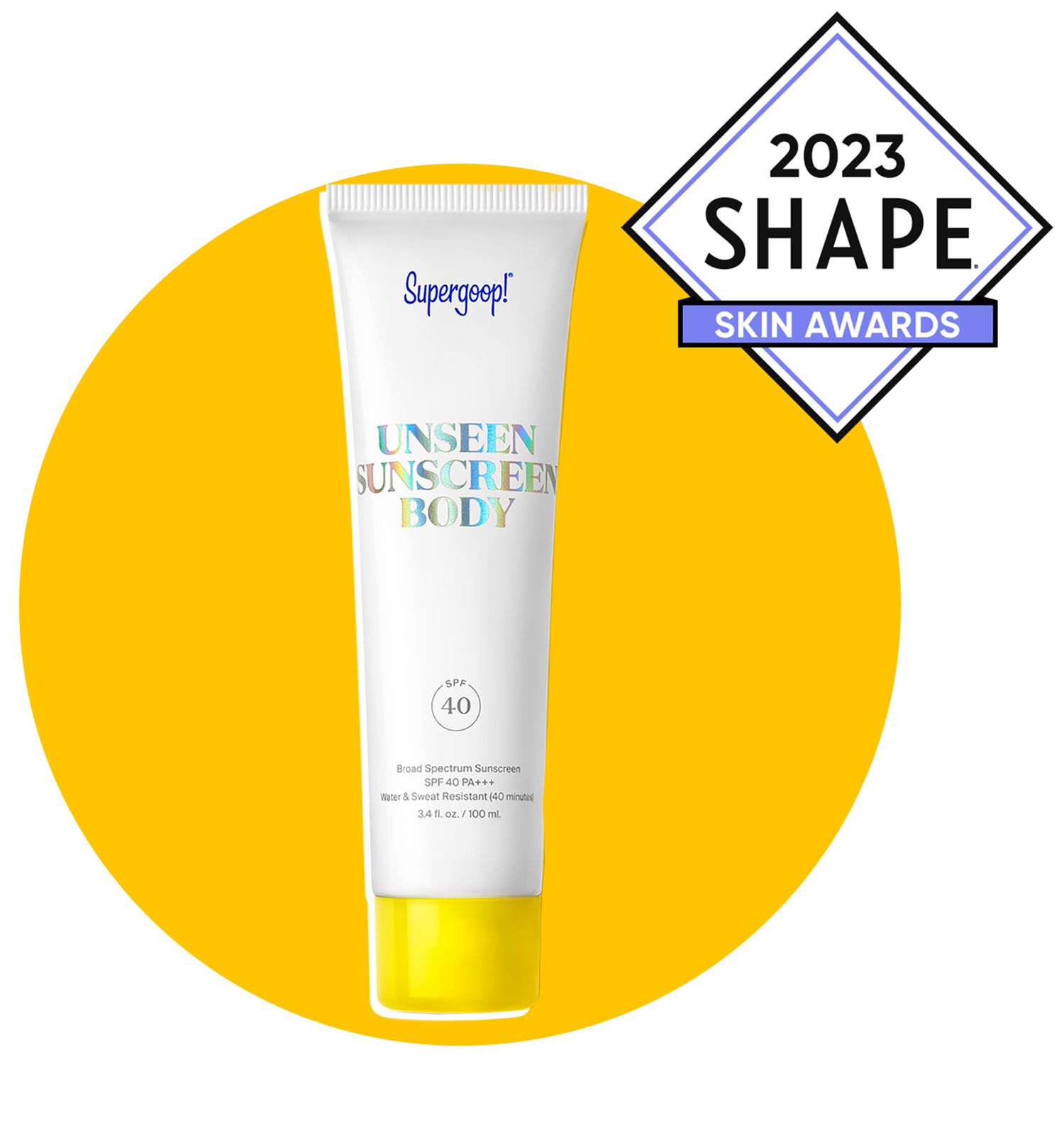"Shape Skin Awards 2023: Top Sun Protection Products Tested and Reviewed"

For years, "sun protection" and "skincare products" have been two separate entities in the beauty world, never truly converging. Sunscreen existed in its own aisle in drugstores, with every tube filled with a thick, white, coconut-scented formula that was both goopy and liquid enough to run.
Nowadays, sun protection has rightfully become an essential aspect of any skincare regimen. Not only can it help reduce the risk of skin cancer, but it can also decrease inflammation and redness and possibly prevent the development of fine lines and wrinkles. According to Joshua Zeichner, M.D., a board-certified dermatologist and associate professor of dermatology at Mount Sinai Hospital, "Sunscreen is your number one line of defense to prevent the development of skin cancer and to defend against environmental exposures that contribute to premature aging. The benefits of wearing sunscreen are not seen immediately. In fact, it's not until years later that you will even realize the preventative effect that sunscreen has provided."
Since sun protection is such a vital part of skin health and appearance, it has its own focused category in our 2023 Skin Awards. We assessed several top sun protection skincare products by analyzing their features, key ingredients, and SPF levels. Our panel of dermatologists, estheticians, cosmetic chemists, and everyday athletes, along with Shape editors, tested and approved every product listed below. We also spotlighted a pick we call the "Gym Bag Hero," which is a necessary sun protection product for those on the go.
Selecting a face sunscreen demands careful consideration; it should have a lightweight texture, absorb easily, and not leave a white cast on your skin. The ISDIN Mineral Sunscreen is an excellent option as it acts as a physical barrier without clogging pores. Its silky, smooth texture glides smoothly on the skin and blends readily with any tint or foundation.
"What I like so much about this product is that it has an enzyme called photolyase in it,” says Dr. Mariwalla. "It is one of the only sunscreens that contain this molecule, which acts to repair DNA." Photolyase can counteract DNA damage caused by UV radiation. "Studies have shown a significant decrease in precancers in patients who use this [photolyase] regularly, and I have found that to be true in my practice as well."
SPF: 50 | Type of Sunscreen: Mineral | Size: 3.4 fl. oz. | Key Ingredients: 11% zinc oxide, vitamin E
The Vacation Classic Lotion sends off retro pool vibes in a tube. With its 80s-inspired packaging and evocative scent of coconut, chlorine, and banana, you'll feel like you're on a tropical vacation. Moreover, it is a high-performing body sunscreen that boasts a feather-light feel, rapid absorption, and water-resistance all recommended up to 80 minutes. With key components such as coconut oil, aloe vera, and niacinamide, it is reef safe and compliant with the Hawaii Reef Compliant Act 104.
SPF: 30 | Type of Sunscreen: Chemical | Size: 3.4 fl. oz. | Key Ingredients: Coconut oil, aloe vera, banana extract, niacinamide (vitamin B3), vitamin E
Newsflash: lips require sun protection, too, as per Dr. Mariwalla, and they are often left unprotected. A lip balm, such as the EltaMD UV Lip Balm, with SPF can help prevent dry and chapped lips from worsening. Glycerin and vitamin E are potent moisturizing ingredients, while seven percent zinc oxide serves as a sun shield. Its slanted applicator and squeeze tube make it simple to apply on the go.
Mineral sunscreen creates a physical barrier between your skin and ultraviolet radiation by using ingredients like zinc oxide. It’s very gentle (in fact, most baby sunscreen is mineral), so it’s a non-irritating sunscreen option for sensitive skin. However, mineral sunscreens get a bad rap for leaving a white cast on the skin and being hard to blend.
Chemical sunscreen uses chemical filters to protect against ultraviolet rays. They protect your skin by soaking up damaging rays before they damage your skin barrier. Chemical sunscreens are usually more lightweight and easily absorbed than mineral options, so they may be the go-to sunscreen for people with melanated skin or who like to layer makeup over sunscreen.
Broad-spectrum protection refers to sunscreen that deflects both UVA and UVB rays, instead of just UVB rays. UVA stands for ultraviolet A radiation, a type of ray that’s a little weaker than UVB and mostly responsible for signs of early aging related to sun damage. UVB, aka ultraviolet B rays, are stronger and can cause sunburns or skin cancer (although UVA rays are linked to skin cancer too). Bottom line: You want a sunscreen with broad-spectrum protection to cover all your skin health bases.
SPF stands for sun protection factor, and it refers to how long the sun’s UVB radiation would take you to burn when using the product as directed compared to the amount of time it would take you to burn without any sunscreen. For example, sunscreen with SPF 30 means that by wearing it, it would take you 30 times longer to burn than if you weren’t wearing sunscreen.
It’s important to note that SPF only refers to protection against UVB rays, not UVA — so seek out a broad-spectrum sunscreen for the best defense. The American Academy of Dermatology (AADA) recommends using water-resistant, broad-spectrum sunscreen of SPF 30 or higher.




